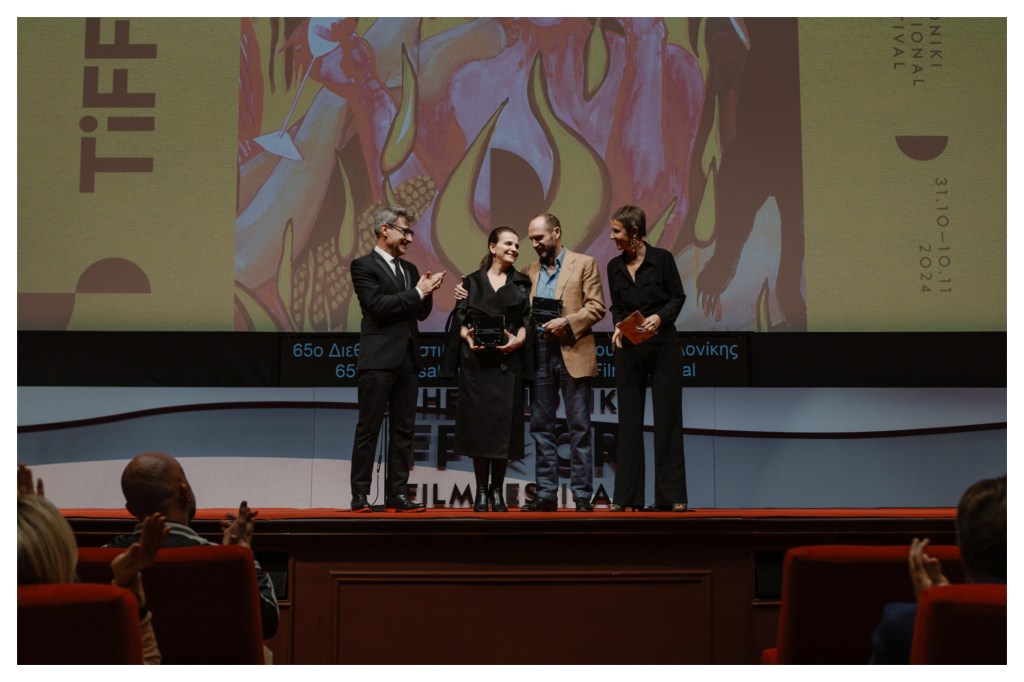Returning to Greece with the historic drama “The Return” proved an emotional affair for Juliette Binoche, Ralph Fiennes and director-producer Uberto Pasolini. “Meeting this dream, this need inside Uberto and his passion for the story… We had been truly moved,” talked about Binoche sooner than bursting into tears alongside her co-star and director on the film’s press conference on the Thessaloniki Film Competitors.
“It was transferring because of that’s what you desire to for as an actor,” continued Binoche with a quavering voice, whereas a visibly teary-eyed Pasolini sat alongside her. “Everyone knows how troublesome it’s [to get a film made]. After we had [Pasolini] go home with the arduous drives he may work with and full this need, it felt like we had been okay. We’re okay.”
“The Return,” based on Homer’s historic Greek poem “Odyssey,” is a passion mission 30 years inside the making for the “Nonetheless Life” and “Nowhere Explicit” director, best generally called the Oscar-nominated producer of “The Full Monty.” Throughout the epic, Fiennes performs Odysseus as he washes up on the shores of his home island of Ithaca after 20 years of combating inside the Trojan Battle. Binoche performs Penelope, Odysseus’ partner who spent twenty years defending the family’s legacy and now finds herself a prisoner in her personal residence.
Juliette Binoche and Ralph Fiennes every acquired an honorary Golden Alexander award at a screening of “The English Affected individual” in the midst of the Thessaloniki Film Competitors.
Courtesy of Thessaloniki Film Competitors
“Working with Juliette and Ralph, most of the time you say movement and likewise you merely watch and watch and watch because of it’s extraordinary. They give you one factor further superior than you’ll be able to ever have dreamed of,” Pasolini talked about. “When you’re making a film, you reside for these moments. It reminds you of what Bergman talked about, that in all probability essentially the most gorgeous issue to take a look at is the face. When these two faces speak like they do on this film, it’s a blessing.”
The showing duo will be on the Thessaloniki Film Competitors as a result of the recipients of this 12 months’s Golden Alexander award for his or her respective our our bodies of labor, which includes two totally different collaborations in “The English Affected individual” and “Wuthering Heights.” Speaking about their reunion 28 years after Anthony Minghella’s Oscar-winning film, Binoche calls it “future.”
“Sharing the story with Ralph was very specific because of we’ve acknowledged each other for a couple of years and are possibly coming to an age the place you see that it might very effectively be our closing film,” she added, with Fiennes saying, “We’ve stayed excellent associates all via the years and felt this was the suitable issue. As [Juliette] talked about, it was future. It felt so correct that we’d come collectively on this story of an individual and woman coming once more collectively.”
When requested how pertinent her portrayal of Penelope felt for updated girls, Binoche known as her character “a very modern woman though she is an archetype.” “She isn’t the submissive partner, she has her private journey in a kind of desperation. The endurance that that woman wanted to have for him to return once more is large, and if we’re capable of make a parallel with what’s going on on the planet correct now, the feminine side of ourselves has to need that this need to overcome will change, will rework. I can take the story of Ulysses as a story regarding the female and male sides of ourselves that must reunite.”
“It’s possible you’ll be taught the story on so many ranges,” she continued. “Because of this this film is trendy though it’s a standard. Way more modern within the current day than it was on the time.”
One viewers member wove yet another parallel between the film and precise life by mentioning how Penelope may stand for arthouse film and the quite a few suitors who tried to shake her intent might very effectively be seen as these standing in the easiest way of getting unbiased motion pictures made. To this, Fiennes talked about that “we get pretty trapped in these labels of arthouse versus industrial. This seems to me like an earlier language and I hope the youthful know-how of filmmakers who’re forging the cinema of tomorrow don’t fall into this binary lure.”
He continued by saying he hopes up-and-coming filmmakers create “an infrastructure and a method of talking with audiences which stops this, so in a cinema, you probably can have what we might identify arthouse motion pictures and industrial motion pictures collaborating in alongside each other. I imagine it may very well be good to interrupt this barrier.”
Pasolini returned to Fiennes’ comment later inside the dialog when requested regarding the impression of streamers, saying we should at all times take a look at storytelling as a “continuum” and that streamers are confirming that positive points “will enchantment to fewer people, others will enchantment to further.”
“Streamers are serving to reveal motion pictures that haven’t acquired theatrical distribution in positive nations. Possibly Mubi is further interested by a particular cinema than Netflix, nevertheless I imagine they’re serving to [while] nonetheless believing cinema must be watched on an unlimited show amongst totally different people.”
On returning to Greece, the place part of the film was shot sooner than manufacturing was moved to locations in Italy, Fiennes talked about he found Ithaca to be a “very extremely efficient place” and Greece “a uncommon nation.” “There’s some energy or power that I decide in its islands, its seascape and mountains. I actually really feel the similar on the West Coast of Ireland. It’s vitally extremely efficient to actually really feel these spirits.”
The submit Juliette Binoche and Ralph Fiennes on Reuniting for ‘The Return’ appeared first on Allcelbrities.
